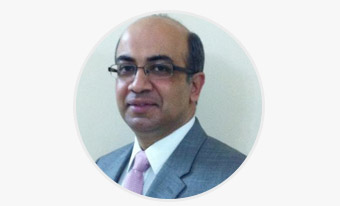Pulmonologist
A pulmonologist is a doctor specialized in diagnosing and treating patients suffering from lung disorders, respiratory problems or similar conditions. They are specialists in treating asthma, bronchitis, pneumonia, lung cancer, and emphysema. Pulmonologists are trained to analyze diagnostic tests, consult with professionals, research symptoms, and finally administer an appropriate course of treatment. When a pulmonologist meets a patient with some chronic complication, he would first identify all physical symptoms after careful examination. Generally, he uses a stethoscope to diagnose the lungs and a bronchoscope to get a view of the airways. He may also use a spirometer for measuring lung capacity.
Pulmonologists can treat individuals with medications and may recommend surgery in cases like lung cancer. In emergency, they are also trained to administer oxygen therapy to patients, or give cardiopulmonary resuscitation (CPR), which can prevent several life-threatening problems of the lungs. The specialist may even decide to place patients in mechanical respirator until the patient’s condition improves, or is likely to be resolved. Post treatment, medical professionals can schedule periodic checkups with their patients in order to monitor their scope of improvement and condition, as well as ensure respiratory problems don’t recur. Because lung problems are chronic in nature and may require extensive treatment, a pulmonologist should be able to develop a strong relationship with the patient. Treatment and diagnosis of lung problems take time and effort.
Pulmonologist provide different types of medical services to patients, such as:
- Test lung capacity and breathing problems
- Perform cardiopulmonary resuscitation (CPR)
- Use interventional techniques for quick treatment
- Physical examination of patients with stethoscope and bronchoscope
- Recommend routine blood tests, ultrasounds, or biopsy
- Prescribe lung medications to patients like antibiotics, anti-inflammatory pills, and inhalers
Few of our Panelists

MD (Respiratory Medicine), MSc Infectious Diseases